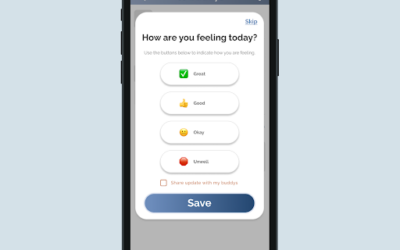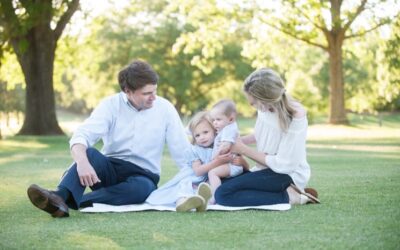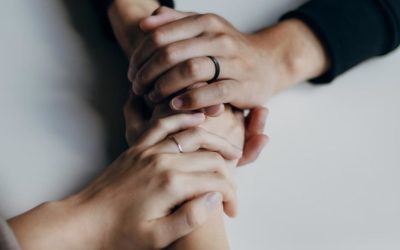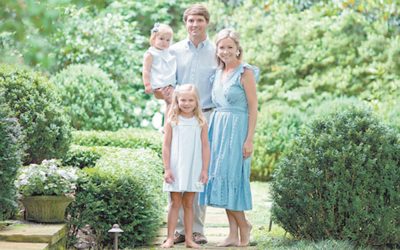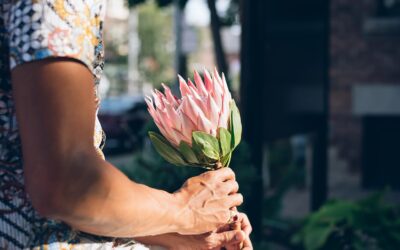If you are experiencing a difficult time right now, you are not alone. Especially during periods where people feel the most isolated, we need to know that community resides everywhere we look. Whether it is an in-person network or one online, the results can be meaningful all the same.
National Geographic completed a study of the regions of the world that support the longest-living people. They determined nine components that lead to a long, healthy life. One of those components was called “Right Tribe.” In other words, experiencing the power of community.
Building a community or support network involves both internal and external effort. Finding and cultivating supportive friends, mentors, and other people who help you grow and feel supported takes time, focus, and work.
While this task may appear daunting, many of the principles we discuss are simple for anyone who is willing to try. So, take a deep breath, clear your thoughts, and let’s work together to learn skills and resources that will help you connect.
The Importance of Community
While the word “community” typically makes us envision a large group of people in a town or on a college campus, a community does not need to be big or complicated. Communities are all about the connections formed between the people inside of them.
Because a community is really about shared bonds, the desire to connect with a community becomes stronger. Building community taps into core needs for our mental health, especially if you experience anxiety, the loss of a loved one, or other forms of stress.
Critical human needs such as the sense of belonging and deep understanding, knowing you have dependable, supportive people to turn to, and a feeling of shared purpose come from a sense of community.
Risks of Isolation
A thriving community of supporters, motivators, and inspirers fulfills the goal for a well-rounded and fulfilling life. When someone feels alone or disconnected from a former group, isolation may feel like the only comforting option. However, sustained isolation has several risks.
Throughout the years, several studies have accumulated evidence about the impact of social connection on our mental health. Professor of psychology and neuroscience at Brigham Young University, Julianne Holt-Lunstad, Ph.D., said that the lack of social connection heightens health risks just as much as smoking 15 cigarettes a day or having an alcohol use disorder.
Benefits attributed to having a social support system include improving coping skills for stressful or emotional situations, enhanced self-esteem, adoption of healthy lifestyle habits, and lowered blood pressure.
We expect feelings of isolation during the ups and downs of life. However, if you do not think you can navigate making new social connections, you can always ask for help. Consider consulting a mental health professional or therapist to help you get started.
How to Build Community
The act of making a new friend is the first step in building a community. One simple step builds on the next, and soon, you’ll have a supportive network of relationships in no time. And best yet, you will quickly see the power of community and how rewarding it can be.
Many of these new relationships in your network will be mutual friends or people you meet through those new friends. These “friends-of-friends” may resonate with you, and you may form a bond.
The best way to establish meaningful connections with others is by genuinely knowing yourself first. When you understand your own emotions and motivations, you become a better friend, collaborator, and community member to others.
Taking the time to examine your inner self will also help you avoid developing harmful relationships or habits. Once you know how you tick inside, you can establish boundaries based on a few essential components of self-understanding. This is the best foundation for honest, long-term bonds.
While self-reflection is a lifelong process, there are a few core questions you can ask yourself to get in touch with your inner self today:
- What do I like to do?
- What matters to me?
- What do I believe in?
Consider these questions deeply – maybe reflect on them a few times over a few days. This is the foundation that will help you form a new community network.
- What Do I Like to Do?
In many instances, you will be establishing a community around a common interest. If you are not someone who currently has a hobby, asking yourself a question like this can help you look inside to discover what truly appeals to you.
Are you someone who always watches football on Sundays? Maybe you would like to volunteer as a coach or join a fantasy football league. Do you often read mysteries or thrillers? Consider investing in a metal detector and finding others who are scouring your local beaches.
If you are someone who tends to gravitate toward “shoulds” vs. an honest response, then you should check in with yourself here. Do you really enjoy jogging, or do you feel like you should? Does everyone around you love to drink, but deep down it’s not really your thing??
You are your most authentic and engaging self when you are doing things that genuinely interest you. When you compromise on your interests when meeting new people, you’re not putting your best foot forward.
The old saying goes, “Birds of a feather flock together.” Commonly, the people you meet doing things you already enjoy will share other interests that may spark your attention.
There is no more fulfilling experience than sharing something you love with people who understand. By truly considering the activities you participate in or the topics you are continually drawn to, you may discover a whole new community that has been waiting for you.
- What Matters to Me?
Once you have determined what interests you, go a little deeper to discover your values. Someone’s values are the importance or worth they give to a specific idea.
A common value is the “Golden Rule”, or better known as, treating others the way you would like to be treated. Values are personal and differ for every individual. They don’t necessarily have an evidenced-based rationale or foundation. However, a person’s values are not less important because of that.
“What do I like to do?” is a straightforward question. “What matters to me?” requires the willingness to reflect on possibly sensitive ideas on a deep level. Exploring what matters to you at your core will make the community you build even more meaningful and fulfilling.
You may be very interested in dogs or already have a dog for a pet. Your values might determine if you would consider making friends and developing an interest in dog breeding or in deciding to volunteer your time at an animal rescue for stray dogs.
The subject that interests you exists within several different contexts, as we see in our simple “dog” example. By identifying your values, you can make sure the community you build is consistent with the person you are striving to become.
- What Do I Believe In?
This final question represents the deepest, most introspective question of the three. These questions have built upon each other, bringing you closer to truly knowing yourself. This is just the beginning of an inner journey that lasts a lifetime.
So, “what do I like to do?” is objective and linear, and “what matters to me?” adds an emotional, more subjective element to the exercise. This new question, “what do I believe in?,” asks you to combine the two into structured ideas based on your interests and values.
In this context, we are not necessarily talking about “belief” in the context of religion. Instead, “beliefs” can consist of any idea representing a boundary for you. This may be a political stance or an academic theory you have researched.
A person may be a vegetarian because they value the humane treatment of animals and enjoy gardening in their spare time. This person probably also believes in climate change and the importance of not using single-use plastics.
Walk yourself through an exercise like this where you build upon these three core self-reflection questions. If you can draw a line from these three questions to an interest, value, and belief, you have a great start in locating a potential community that could become very meaningful.
Embrace Vulnerability
Once you have spent time understanding some of your core interests, values, and beliefs, it is time to reach out and join a social support network or online community like Buddys. Taking this next step frequently means letting your guard down and opening yourself up to potentially stressful situations for the sake of long-term growth
It’s a normal instinct for people to feel averse to opening themselves up to a new, unknown situation. There is a risk in sticking your neck out in a completely fresh environment. But without risk, there is never any growth or reward.
You’ve already put in a lot of effort to learn more about yourself. Now is the moment to connect with others to share more about yourself. You’ll be amazed at how strong the bond of a community can be when it’s built on solid ground.
Feeling Misunderstood
One barrier to reaching out to forge relationships with others is the fear of feeling misunderstood. If you have experienced a long period of isolation or loneliness, feeling misunderstood is natural.
Sometimes the most limiting beliefs we have come from the fears we hold. You may have fears of intimacy or achieving true closeness with others. And, therefore, have a really hard time opening up and letting people in. Or maybe you have experienced the pain of harsh judgment or broken trust, and are scared that opening up to new relationships will lead to those feelings again.
These experiences can alter your sense of knowing who you are and how you relate to others. And naturally, it can make it really challenging to foster meaningful connections with others. However, conquering these fears will introduce you to many rewarding situations and relationships.
Feeling misunderstood is a powerful story to tell yourself because it reinforces your beliefs in so many ways. However, it is essential to examine the truth behind the situations where you have felt harmed or wronged to explore whether this is real, a story you’ve told yourself or simply you staying in your comfort zone.
Consulting a mental health professional can help you make sense of the objective truth and help you start to heal.
Opening Yourself Up
When you’re feeling confident and have boosted your self-esteem and awareness, it’s time to open yourself up to healthy connections with others! While it may feel scary or overwhelming, the rewards of building a community are at the core of what it means to be human.
Both communication and listening skills are essential to building and maintaining strong connections with others.
Communication
Become curious about the words you choose and the body language you display toward others. Both your verbal and nonverbal communication decisions will help you build the relationships you want.
One easy change you can make is switching from closed questions to open questions. Make the switch from, “Do you like to travel?” to something more like, “I’m thinking about going on vacation soon. What is the best vacation you have ever been on?”
By asking questions that spark a conversation, you demonstrate a genuine interest in the other person. Open questions also draw others into a conversation, making it feel more like a community.
It’s not just your questions that should be open instead of closed. The same rule can be applied to your body language. Stand relaxed with your hands at your sides or in a horseshoe shape instead of a closed circle if you are in a group. This indicates an openness to connection.
Listening
It’s essential to not only know how to ask good questions and maintain a conversation, but you must also practice the art of listening. Others will immediately tell if you are forming your next question as they talk or if you are listening to what they are saying.
Luckily for you, listening is one of the easiest and most natural skills you can cultivate. All you need is a genuine interest in the person and a quieting down of any other nervous thoughts.
When you become a good listener, it benefits your community in so many ways. Good listeners are dependable and trusted and are often seen as considerate because of their practiced skill of paying attention and caring.
Maintaining Connections
Once you have honed your communication and listening skills, have self-reflected, and prepared to get vulnerable, the next challenge is maintaining these fulfilling relationships. Like anything you have tended to and grown, your community requires attention to thrive.
Cultivating Your Network
Exploring new facets of your interests, values, and beliefs is a great idea for many reasons. Not only will this engage you mentally and physically, but you will also undoubtedly meet a new network of people compatible with you. This can freshen and widen your social circle.
If you are a rock climber, consider taking your skills outdoors instead of a climbing gym, or vice versa. You are still getting vulnerable and trying something new, but you have established a comfort zone. Bring along a new friend to make this leap feel even more smooth.
Living Fully
One of the best ways you can cultivate your connections is by staying dedicated to the lessons you have learned about who you are. Staying true to yourself is a great way to commit to the relationships you have cultivated, including the one with yourself.
Dedication to living fully is a courageous way to operate, where you are questioning and expanding your interests, values, and beliefs. Living this way takes consistent vulnerability and a willingness to open your heart and mind to new things.
Renowned social scientist Brene Brown calls living fully, “wholehearted living” and established guideposts for achieving this state. Highlights include letting go of anxiety and the need for control.
If you start to feel pulled into old feelings or the former comforting but limiting beliefs you held, you now have the skills and power of a community to help you. Lean on what you have learned and built to help realign yourself when disconnection or loneliness creeps in.
Conclusion
In periods of depression or other mental health struggles, isolation and a disconnect from the community can make anyone feel hopeless. Knowing how to plug into a community that aligns with what you enjoy, what matters to you, and what you believe in is essential to your health.
The risks of isolation are severe, including a shorter than necessary lifespan due to a lack of essential human connection. In contrast, finding your “right tribe” has been scientifically proven to be one of the nine practices for a long, fulfilling life.
Self-awareness and reflection are essential components to fostering a community that inspires and supports you. Understanding the strengths and weaknesses of your communication style and the fears behind your loneliness is crucial to being a strong community member.
It’s also essential to embrace vulnerability and learning when opening up to a new community. The best way to start a new connection on the right foot is by knowing and being truly yourself.





